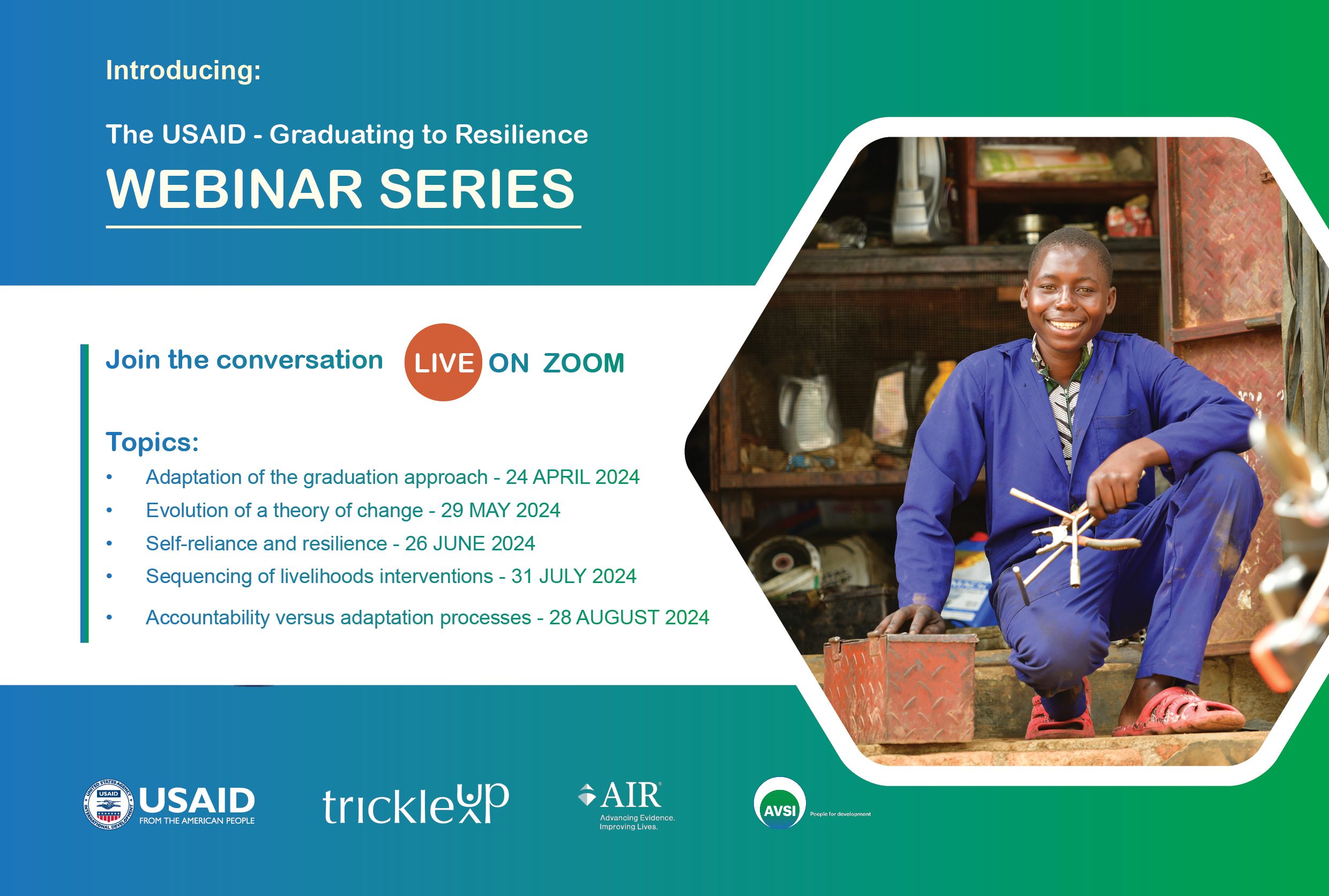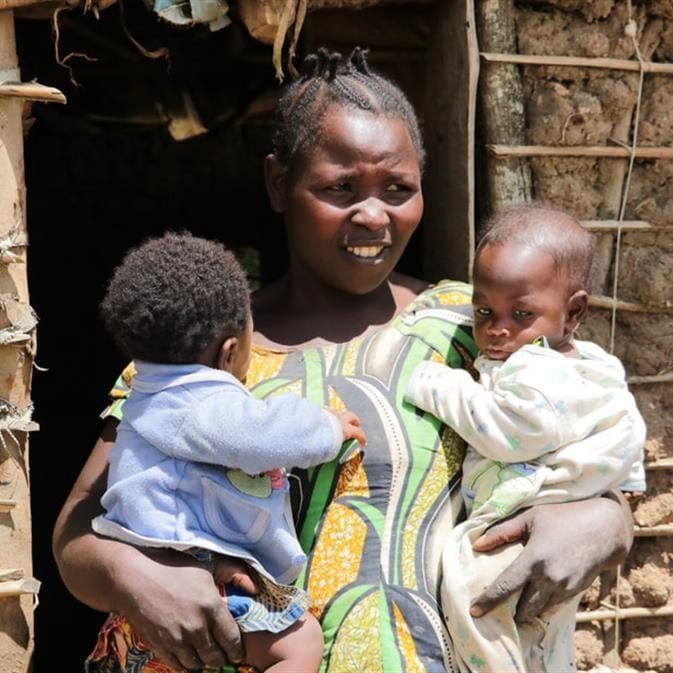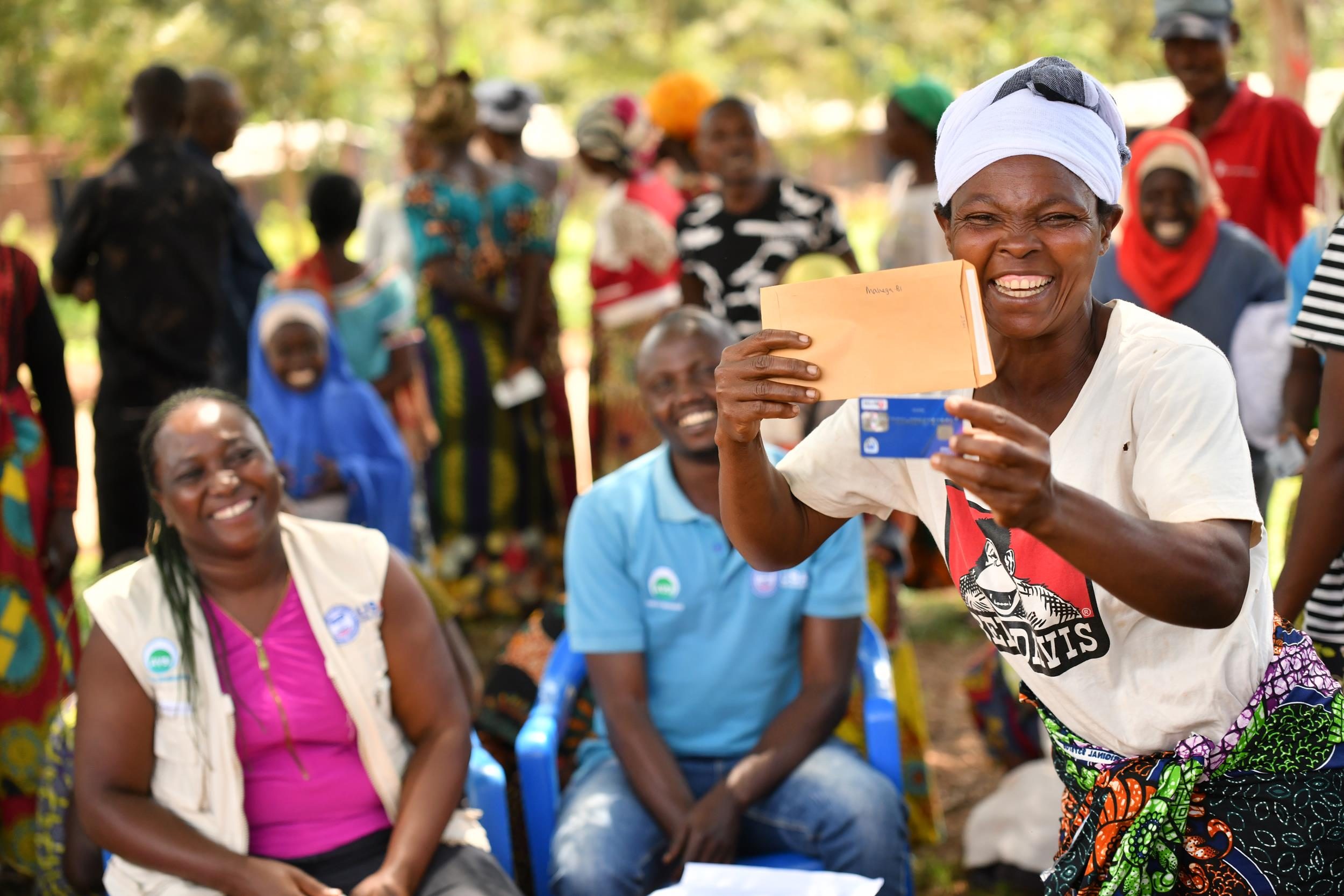About
AVSI Foundation, leading a consortium with Trickle Up and AIR (former IMPAQ International) and funded by the Office of Food for Peace, USAID, is implementing the Graduating to Resilience project in the Kamwenge District, in Western Uganda.
The goal is to graduate extremely poor refugee households who fled from the Democratic Republic of the Congo (DRC) and Ugandan vulnerable households from conditions of food insecurity and fragile livelihoods to self-reliance and resilience.
The Graduating to Resilience project provides an opportunity to test a combination of elements of the graduation approach for impact and cost-effectiveness, including an alternative which draws specifically on the conclusions from the uniquely Ugandan SCORE model.
With this investment, USAID is signaling its commitment to the cutting edge and ambitious “Refugee and Host Population Empowerment (ReHope) Strategic Framework” led by the Government of Uganda and the UN, in partnership with the World Bank, donors and implementing partners. Officially launched in June 2017, ReHope is “a transformative strategy to bring together a wide range of stakeholders in a harmonized and cohesive manner to ensure more effective programming. It is a response to specific challenges faced in delivering protection and achieving social and economic development for both refugee and host communities.”
Impact statement
The AVSI Consortium tackles the underlying causes of food insecurity with a sustainable, cost-effective adaptation of the Graduation Approach. Graduating to Resilience project aims to:
- improve Food Security and Nutrition status of household members
- improve household economic status
- increase resilience of household members and communities.
Goals
USAID and implementing partners will gain critical evidence to inform food security and resilience programming in Uganda and regionally, in refugee and other settings. Global organizations such as UNHCR stand to gain immensely about cost effective ways of adapting and scaling up the Graduation Approach as a solution to extreme poverty as we work to meet the Sustainable Development Goals.
Illustrative activities
COACHING
ECONOMIC STRENGTHENING
FOOD SECURITY & NUTRITION
RISK MANAGEMENT
Beneficiaries
- 13,200 households will be targeted, using Participatory Wealth Ranking at the community level
- 26,400 other individuals directly participating
- 39,600 household members and neighbors receiving indirect benefits
- 50% will be refugees of Congolese descent living in Rwamwanja Settlement
- 50% will be Ugandan households
- 75% of direct participants will be women
- 75% of direct participants will be youth
Approach
AVSI’s past experience with the Graduation Approach in Uganda demonstrates the power of building pressure for improved services and policies, by working at the level of households and communities to increase knowledge and demand for services and appropriate policies. The use of group methodologies in the Graduation Approach stimulates creative collective action around solutions to commonly faced problems. The AVSI led consortium will facilitate the emergence of creative solutions to these problems and will support them to the extent possible.
The AVSI Consortium will work with 13,200 households in Kamwenge District that are economically active, but chronically unable to meet their basic needs without some form of assistance. Half of the households will be from the host community, and the other half will be from the refugee community, taking into consideration each population’s unique needs. Households will be divided into two cohorts, allowing for a rigorous evaluation to be carried out by an external agency contracted separately from this Activity by USAID. Each cohort will participate in the Graduation Activity for 30 months.
Three treatment variations will be tested in parallel during cohort 1:
1) Standard Adapted Model
2) Group Coaching Model
3) Empowerment Model
Graduation approach
The Graduating to Resilience project will adapt the Standard Graduation Approach, developed by BRAC, to the Ugandan context to address the underlying causes of food insecurity and vulnerability to shocks and stresses, in a sustainable and cost effective way.
COHORT 1 Overview and results
By the end of the 30-month intervention period, the overall graduation rate is 73% of the nearly 5,000 households for whom a complete data set is available, using the original threshold of meeting the Graduation Criteria at least three times consecutively.
In addition, 23% of the participating households are making steady progress towards graduation. Only 5% of households (217 in total) remain in conditions of food insecurity and dependence.
When comparing the three treatment arms, participants in the first and second arms performed nearly as well, with treatment arm 3 close behind. Even though progression to the final result was slower, refugee households performed just as well as the host community.
Additional results by component:
Food Security and Nutrition
- 96% achieved minimum meal frequency for children 6-23 months
- 91% prevalence of exclusive breastfeeding of children under six months
- 98% of household’s meals contained the 3 food groups in the last week
Livelihoods, Agriculture, and Basic Needs
- 96.2% of participants diversified their businesses
- 5,008 participating households can meet basic needs
- 4,862 households are using climate information or implementing risk-reducing actions to improve resilience to climate change
- 95.3% of households access improved agricultural inputs
Village Savings and Loan Association (VSLA)
$934,735 and $876,332 cumulative savings and loans, respectively, from 266 VSLA groups and 5,578 participants with an average household savings of $167 (603,271 UGX).
Water, Sanitation, and Hygiene
- 92.4% of households have soap and water at a handwashing station
- 97% of households practice correct use of recommended household water treatment technologies
Gender Equality and Women’s Empowerment
- 97.4% of females reported increased self-efficacy at the conclusion cohort one
- 46.4% of participants reported GBV as less acceptable after participating in Graduating to Resilience
- 93.6% of women in union report participating in decisions about the use of self-earned cash
- 94.2% of women in union report participating in decisions about the use of a spouse/ partner’s self-earned cash













